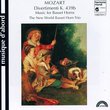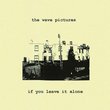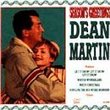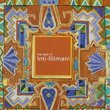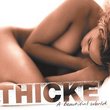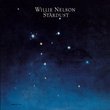| All Artists: Alexandru Agache, Nicolae Bretan, Cristian Mandeal, Moldova Philharmonic Orchestra, Iasi 'Moldova' Philharmonic Chamber Orchestra, Sanda Sandru, Tamas Daroczy, Ionel Voineag Title: Nicolae Bretan: Golem and Arald Members Wishing: 0 Total Copies: 0 Label: Nimbus Records Release Date: 9/5/1995 Genres: Pop, Soundtracks, Classical Styles: Vocal Pop, Opera & Classical Vocal, Historical Periods, Modern, 20th, & 21st Century Number of Discs: 1 SwapaCD Credits: 1 UPC: 710357542428 |
Search - Alexandru Agache, Nicolae Bretan, Cristian Mandeal :: Nicolae Bretan: Golem and Arald
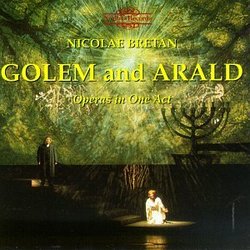 | Alexandru Agache, Nicolae Bretan, Cristian Mandeal Nicolae Bretan: Golem and Arald Genres: Pop, Soundtracks, Classical
|
Larger Image |
CD DetailsSimilar CDsSimilarly Requested CDs
|
CD ReviewsMore beautiful music than we'd any right to expect. darragh o'donoghue | 01/25/2001 (4 out of 5 stars) "The Transylvanian composer Bretan had one of the grimmer lives of any notable composer - his wife's family were murdered in Auschwitz; his refusal in post-war Romania to become a Communist led to his silencing - but you wouldn't know it from either of these operas. They are serious and solemn enough. 'Golem' takes the old story of a rampaging Frankenstein-type monster and turns it into a melancholy dialogue about life, science, creation, family. 'Arald', with its hero supplicating the Seer of the Underworld to resuscitate his dead love, forswears doomy Gothic in favour of more metaphysical musings. From a dramatic point of view, both works are static. Musically, however, they are gloriously reminiscent of mid-period Verdi - bountifully melodic, rapturously sad - with an Eastern European flavour. The fact that an opera composer in the mid-20th century dared even write a TUNE is reason enough to rejoice." Two short beautiful, somber lyric operas. darragh o'donoghue | 05/06/1999 (4 out of 5 stars) ""Golem" is a one-act opera about the legendary clay man created by the Rabbi of Prague. The poignant libretto is by the composer. The music is beautiful and lyric, but has no memorable tunes. Stylistically, it is a bit like Rimsky-Korsakoff's operatic writing. "Arald" is not really an opera but a scenic cantata. It tells of the despair of the khan of the Avars over the loss of his wife. The gloom of both text and music put me off at first. On second hearing, I loved it! It is more tuneful than "Das Lied von der Erde" and has none of the dissonance of Bartok's "Duke Bluebeard's Castle", but the mood is similar." A fascinating double bill Ralph Moore | Bishop's Stortford, UK | 11/22/2008 (5 out of 5 stars) "Following on from my discovery of Bretan's "Evening star" ("Luceafarul" - see my review), I have been listening to a disc of some his songs and this opera double bill CD - both featuring the mellifluous baritone Alexandru Agache, more widely celebrated for his Verdi roles. The idiom here in "Golem" is very different from the other-worldly simplicity of "Luceafarul"; this is far more restless and melodramatic but, like that earlier opera, it is through-composed. It often uses elements of Klezmer music, with alternately wailing and joyful melodies. The overture, for example, presents a soulful, soaring theme for the violins (representing the clay-creature Golem's yearning for humanity) alternating with jollier trumpet and flute passages. Of course, the allusions to Klezmer are wholly appropriate for a legend centring on Rabbi Löw and the Golem - the Jewish predecessor to an idea more familiar to many as the "Frankenstein" story.
The standard of performance here is high: the orchestra is noticeably superior to that Nimbus recorded for "Luceafarul", the singers - especially Agache, of course - are of international standard and the sound quality is exemplary. This is a taut, compact, terrifying tale and would work very well in the theatre. As with Shelley's Creature, Bretan's music and Agache's interpretation of it makes Golem a figure arousing both fear and compassion. There is little action in either piece, but the music is full of variety and drama, and I disagree with the previous Amazon.com reviewer who claims that there are no memorable tunes; Anna's aria, an invocation to life and the sun, turns into a trio to end the work and suggests a melody that Mascagni or Leoncavallo might have written for one of their heroines. "Arald", more of a cantata than an opera, is more lyrical, grand and static. It is a strange, ambiguous, pagan tale, based, like "Luceafarul", on a poem by Eminescu, dealing with the same desire for release from the pain and darkness of existence and into light and love. It is a rather sombre piece but imposingly sung and both melodic and short enough to sustain the listener's interest. The role of the Seer allows Agache in particular to show off his legato in broad, arcing phrases and there is a Wagnerian intensity in the love duet which has a pulsing quality reminiscent of the "Wesendonck Lieder". I see no reason for these works to languish unperformed outside Romania; they would form a most entertaining double bill at, say, the English National Opera, though I doubt whether they would want to take the risk on the virtually unknown Bretan, whose music was considered retrogressive (i.e. tonal and melodic) even in its day. " |

 Track Listings (18) - Disc #1
Track Listings (18) - Disc #1